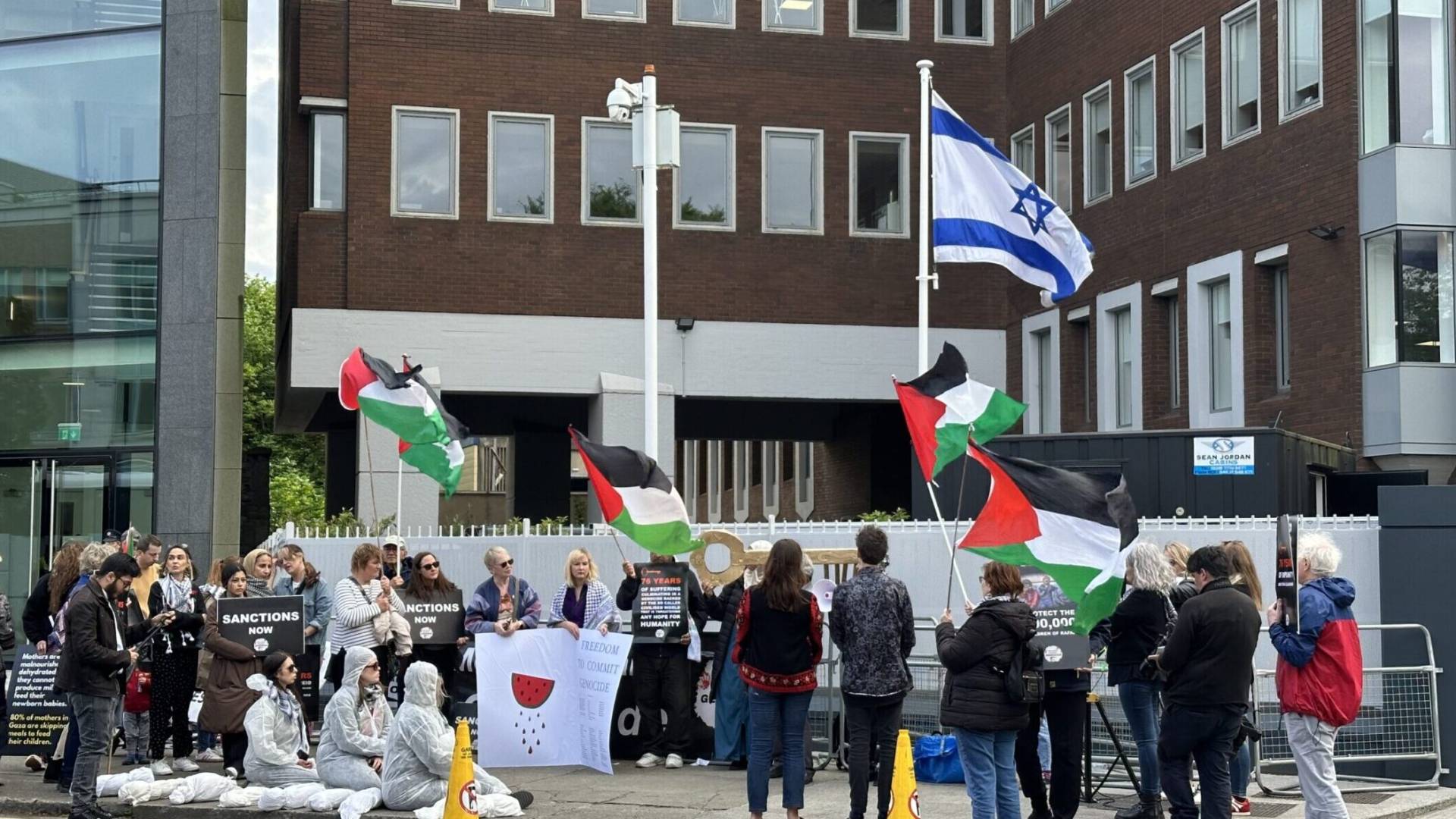"Israeli" embassy in Dublin (Credit: Getty Images)
Ireland refutes anti-Semitism claims following "Israel's" embassy closure in Dublin
The Irish government firmly rebutted allegations of anti-Semitism made by "Israel", which announced the closure of its embassy in Dublin.
On Sunday, "Israel's" foreign minister, Gideon Sa'ar, announced the closure of "Israel's" embassy in Ireland, attributing the decision to the Irish government's "extreme anti-Israel policies."
Read more: "Israel to close embassy in Ireland," says 'Israeli' Foreign Minister
The embassy closure comes in the wake of Ireland's recognition of a Palestinian state in May and its subsequent decision to formally intervene at the International Court of Justice (ICJ) to support South Africa's genocide case against "Israel."
Sa'ar criticized the Irish government, stating that the "actions, double standards, and anti-Semitic rhetoric of the Irish government against Israel are rooted in efforts to delegitimize and demonize the Jewish state."
In response, Irish Taoiseach Simon Harris expressed his disappointment on social media platform X, stating, "This is a deeply regrettable decision from the Netanyahu government. I utterly reject the assertion that Ireland is anti-Israel. Ireland is pro-peace, pro-human rights and pro-international law." He emphasized Ireland's commitment to a two-state solution, advocating for "Israel and Palestine to live in peace and security."
This is a deeply regrettable decision from the Netanyahu government. I utterly reject the assertion that Ireland is anti-Israel. Ireland is pro-peace, pro-human rights and pro-International law. https://t.co/rDga5GpT3u
— Simon Harris TD (@SimonHarrisTD) December 15, 2024
Sa'ar further condemned Ireland's recognition of a Palestinian state, claiming it was "praised by Hamas," and accused Ireland of "redefining" genocide to bolster South Africa's case.
On December 11, Ireland's foreign ministry announced its intention to intervene at the ICJ, citing "a collective punishment of the Palestinian people through the intent and impact of military actions of Israel in Gaza." The ministry expressed concerns that a narrow interpretation of genocide could foster a culture of impunity that diminishes the protection of civilians.
Additionally, Sa'ar criticized Ireland for not adopting the International Holocaust Remembrance Alliance (IHRA) definition of anti-Semitism, which was adopted by the UK in 2016.
The IHRA definition, developed by anti-Semitism expert Kenneth Stern in collaboration with the American Jewish Committee, aims to help monitor anti-Semitism in Europe. However, critics argue that some examples within the definition blur the lines between anti-Semitism and anti-Zionism, or critique of "Israeli" policies.
In 2023, several "Israeli" rights groups condemned the IHRA definition, asserting that it has been used as a tool to "silence dissent" regarding "Israel's" treatment of Palestinians. Organizations such as B'tselem, Adalah, Breaking the Silence, and Yesh Din declared, "The Israeli government views and treats the IHRA definition as a coercive tactic and tool to silence dissent to its repressive policies vis-a-vis the Palestinians."




